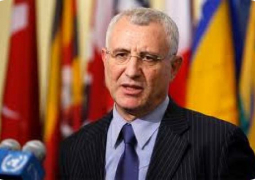DPS Hassan Jallow made this remark at the launching of the Country Inclusive Dialogue for Formulation of National Resilience Priorities for The Gambia held at a hotel in Bijilo.
The Global Alliance for Resilience (AGIR) – Sahel and West Africa – comprised the 17 member countries of ECOWAS, UEMOA and CILSS in Sudano-Sahelian and Guinean region.
The countries are particularly exposed to cyclical food crisis following the major drought crises of 1973 and 1984.The Sahel, particularly, has experienced series of more or less acute food and nutritional crises in 2005, 2010, and 2012.Other countries in the region were also affected by the financial crisis and subsequent global rise in food prices in 2008.
DPS Jallow said particular attention is paid to the Sahel zone where millions of people faced structural hunger and malnutrition.
He pointed out that beyond the extreme fragility of the Sahel, AGIR also takes into account the fact that in the northern part of the coastal countries, the agro-ecological environment has degraded over the past several decades, approaching Sahelian conditions.
He noted that within the framework of the 28 annual meeting of the Food Crisis Prevention Network held on 6 December 2012 in Ouagadogou, food and nutritional security stakeholders sealed AGIR and adopted a joint declaration.
Sheriff T.J. Sanyang, AGIR focal point The Gambia, said during a high level consultative meeting held in Brussels on 18 June 2012 on food insecurity in the Sahelian and West African countries unanimously agreed upon the chronic and structural nature of factors underlying food and nutrition crises which affect the resilience of most vulnerable households and families in the Sahel and West Africa.
He pointed out that the European Union is the biggest donor and committed enormous amounts of money for the actual implementation of AGIR activities.


